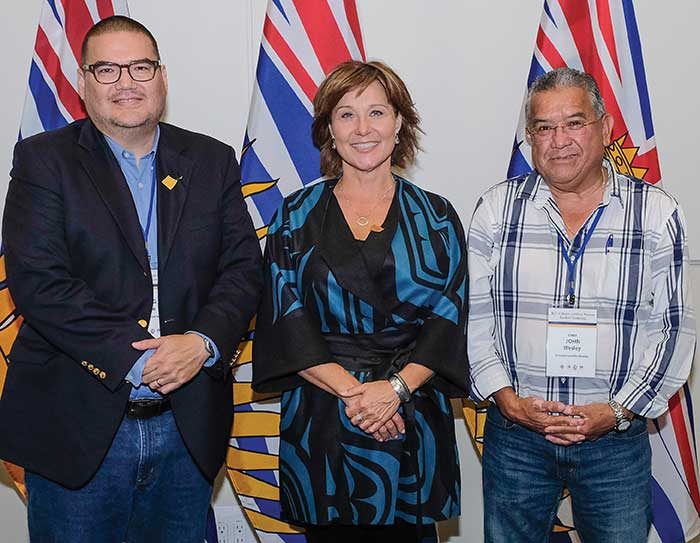Quality of life key agenda item in top-level meetings
Early September was a busy time for First Nation leaders in BC.
First, there was the signing of a partnership agreement with the BC Business Council for economic development between First Nations and business leaders, focusing on a shared vision going forward to remedy the negative economic and social outcomes currently facing many nations.
Then, the BC Assembly of First Nations Regional Chief Shane Gottfriedson and Premier Christy Clark announced BC’s commitment to $2.5 million dollars over three years to support the BCAFN’s sustainable economic development strategy. The funding will support environmentally-responsible economic development in BC as First Nations move forward in developing their own opportunities.
A flurry of other announcements from BC followed, including:
• A partnership project with the BC First Nations Forestry Council;
• $2 million to the Royal BC Museum to support all interested Aboriginal peoples seeking the return of their ancestral remains and belongings of cultural significance;
• A cooperative effort to find new, practical approaches to improving First Nations people’s health and wellness; and
• Support for the work of the Moose Hide Campaign, dedicated to ending violence against women and girls, to the tune of $250,000.
Those announcements came during the now-annual gathering of First Nations leaders and BC cabinet ministers. The event is jointly organized by the First Nations Leadership Council and the Ministry of Aboriginal Relations and Reconciliation.
Regional Chief Gottfriedson said of the gathering: “In order to advance reconciliation, we must continue to build bridges as demonstrated with our new memorandum of understanding with the BC Business Council and the strong commitment of support provided by the province of BC.
“It’s not my role to administer this strategy, but to help communicate, educate and advocate for our First Nations to develop as they see fit.
“We must work together to ensure more positive, constructive, and meaningful relationships with government and industry, and in turn, we must work together as First Nations governments to address the poverty in our communities that has sadly become commonplace.
“It is time for us to start managing wealth, rather than administering poverty.”




